
I’m feeling weirdly hurt by the viral tweet mocking geoscientists for licking rocks.
I get that we’re a bit weird even for scientists and get a bit more blunt with our toolset, but licking rocks is a real strategy. Taste & texture are diagnostic.
I get that we’re a bit weird even for scientists and get a bit more blunt with our toolset, but licking rocks is a real strategy. Taste & texture are diagnostic.
Evaporites are soft (scratch with your fingernail), but the easiest way to ID between halite vs sylvite is salty vs sour.
IDing sand vs clay is the cutoff between gritty or not.
Fossils stick to your tongue.
You don’t NEED to lick rocks; it’s just faster & easier.
IDing sand vs clay is the cutoff between gritty or not.
Fossils stick to your tongue.
You don’t NEED to lick rocks; it’s just faster & easier.
I don’t lick every wild rock I meet, and licking lab samples is just gross.
But if you’re out doing field rock ID, you already know enough to keep your tongue away from arsenopyrite & don’t waste your time nibbling granite.
But if you’re out doing field rock ID, you already know enough to keep your tongue away from arsenopyrite & don’t waste your time nibbling granite.
Not all geoscientists lick rocks. I’m geophysics — 95% of my rock ID is recreational, & it’s been at least a year since I last licked a rock.
But it’s not an inherently ridiculous concept worthy of mockery.
But it’s not an inherently ridiculous concept worthy of mockery.
Epilogue:
Q: But what about that salt-licking scene in Last Jedi? Surely that was ridiculous!
A: No. That was plausible bordering on geo fan service.
And it’s tactically important to know what rocks encompass you unless you’re a fan of dumb ways to die.
Q: But what about that salt-licking scene in Last Jedi? Surely that was ridiculous!
A: No. That was plausible bordering on geo fan service.
And it’s tactically important to know what rocks encompass you unless you’re a fan of dumb ways to die.
Q: What about the Doctor?!
A: Excellent tasting technique.
I don’t remember which episode this is for context, but I’d guess dry former water body with sour-bitter-tangy sylvite (or salty halite, but that’s usually less pucker).
A: Excellent tasting technique.
I don’t remember which episode this is for context, but I’d guess dry former water body with sour-bitter-tangy sylvite (or salty halite, but that’s usually less pucker).
Q: Please critique Jack Sparrow's geology taste test technique?
A: Terrible.
First: WAY too much tongue. It's test, not a snack.
Second: Any rock tough enough to weather into that nice smooth shape isn't one where taste is diagnostic. All you'll get is the seawater coating.
A: Terrible.
First: WAY too much tongue. It's test, not a snack.
Second: Any rock tough enough to weather into that nice smooth shape isn't one where taste is diagnostic. All you'll get is the seawater coating.
Star Wars: "Well, actually..." follow-up:
Doctor Who: Sediments were dead people, so taste test is EXTREMELY diagnostic. Fossils stick to your tongue; desiccating/sticky texture.
Other pop culture geo taste tests? Ping with gif/clip/still for critique.
https://twitter.com/mikamckinnon/status/1030725051732172800
Doctor Who: Sediments were dead people, so taste test is EXTREMELY diagnostic. Fossils stick to your tongue; desiccating/sticky texture.
Other pop culture geo taste tests? Ping with gif/clip/still for critique.
Q: ...but won't it kill you if you lick the wrong rock?
A: Do not lick anything with mercury, arsenic, or lead. A few others can still kill you (lookin' at you, villiaumite, torbernite, & chalcanthite), but that's a good starting point.
A: Do not lick anything with mercury, arsenic, or lead. A few others can still kill you (lookin' at you, villiaumite, torbernite, & chalcanthite), but that's a good starting point.
Bad minerals to lick:
Anything that smells like garlic (arsenic). Even handling is sketch thanks to carcinogenic, neurotoxic powder; burning is bonus bad news.
Arsenopyrite: arsenic + sulfur
Orpiment: arsenic + sulfur
Hutchinsonite: sulfosalt of thallium, lead & arsenic


Anything that smells like garlic (arsenic). Even handling is sketch thanks to carcinogenic, neurotoxic powder; burning is bonus bad news.
Arsenopyrite: arsenic + sulfur
Orpiment: arsenic + sulfur
Hutchinsonite: sulfosalt of thallium, lead & arsenic
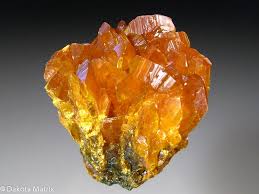
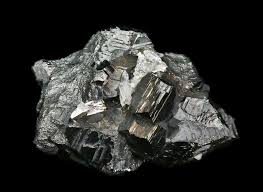
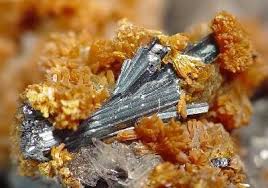
Anything with mercury is a slow, painful way to die.
Cinnabar: gorgeous mercury sulphide; also the most deadly mineral on Earth. Do not lick. Do not even touch. Considering it oxidizes to methyl mercury & dimethyl mercury, don't go near it, either. Just turn around. Now.

Cinnabar: gorgeous mercury sulphide; also the most deadly mineral on Earth. Do not lick. Do not even touch. Considering it oxidizes to methyl mercury & dimethyl mercury, don't go near it, either. Just turn around. Now.

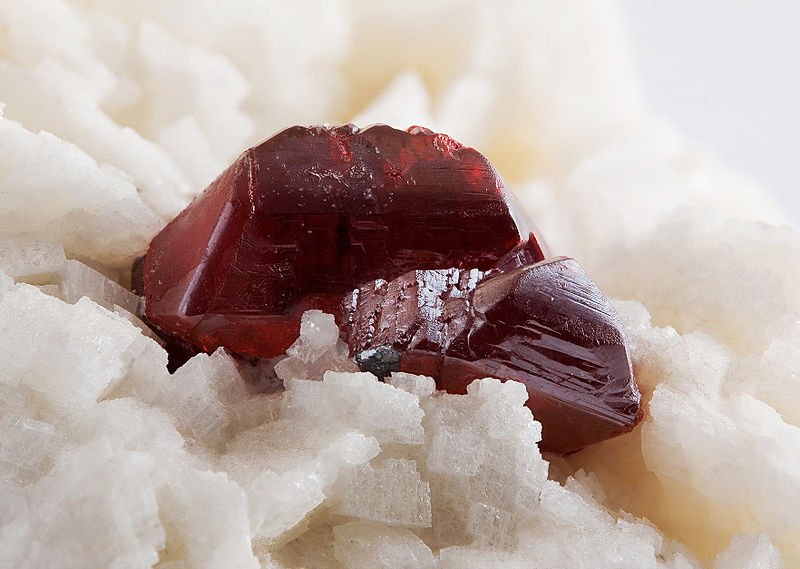
Coloradoite: mercury telluride, which are both toxic. Heat it up for a deadly vapour!
Mercury: ...it's mercury. Melts in your hand, then infiltrates and poisons you. So fun, DO NOT LICK.
Really, anything with mercury is just a bad move to lick. Full lick-ban on all Hg minerals.


Mercury: ...it's mercury. Melts in your hand, then infiltrates and poisons you. So fun, DO NOT LICK.
Really, anything with mercury is just a bad move to lick. Full lick-ban on all Hg minerals.
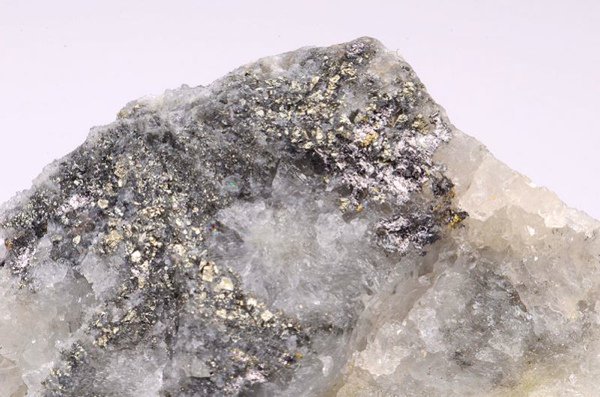
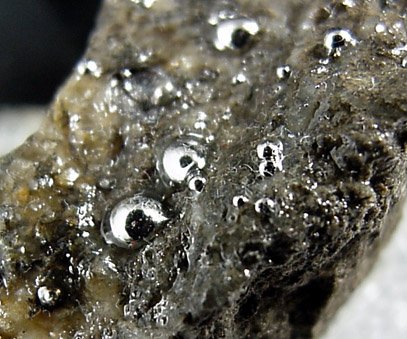
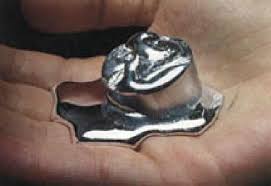
Chalcanthite: water-soluble copper sulfate. Taste is diagnostic (sweet metallic) yet it leads to copper poisoning. So, don't lick, but if you're going to, make it a quick tongue-touch-retreat to minimize exposure. 



Anything with lead is a no-go for licking unless you love the long-term violence of lead poisoning.
Galena: lead. Like, all the lead. So much lead. Don't eat it or huff it. Just smash it with a hammer -- if you get a bunch of smaller cubes, yay, it's galena! Done.
Galena: lead. Like, all the lead. So much lead. Don't eat it or huff it. Just smash it with a hammer -- if you get a bunch of smaller cubes, yay, it's galena! Done.

Asbestos (serpentine, crocidolite, grunerite, tremolite, anthophyllite & actinolite) is not inherently deadly to lick, except it'll splinter into your tongue like fibreglass & you'll huff shards into your lungs for long-term damage.
Overall, bad candidate to lick (or pet).


Overall, bad candidate to lick (or pet).


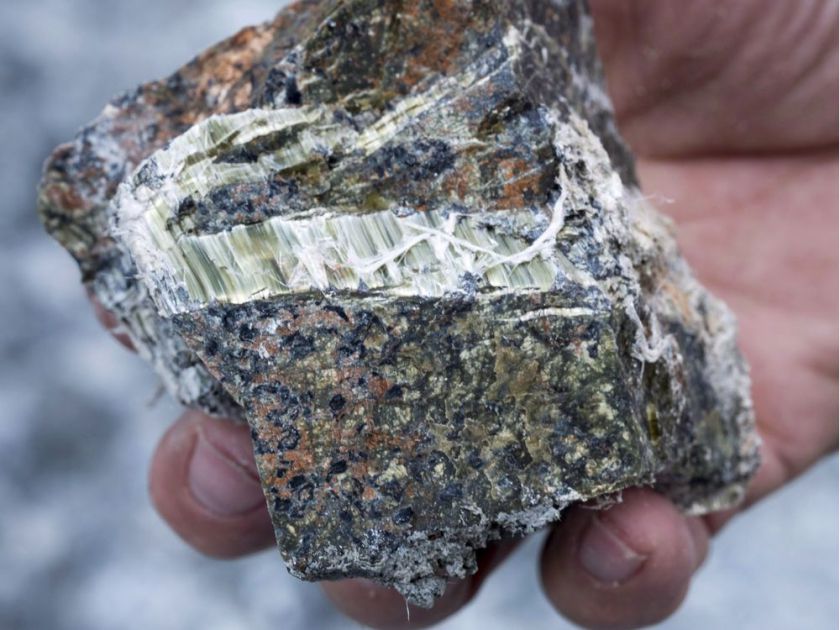
Torbernite: uranium. It's radioactive. Licking anything radioactive is a bad idea. It also has copper for a bonus copper poisoning.
Pitchblende (uraninite) & autunite are also bad choices to lick, but great choices for uranium ores if you need to build a bomb from scratch.



Pitchblende (uraninite) & autunite are also bad choices to lick, but great choices for uranium ores if you need to build a bomb from scratch.

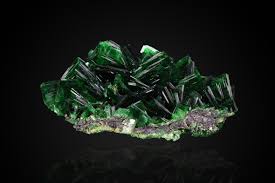


Villiaumite looks seriously tempting, but is a VERY BAD IDEA. It's cherry red, very soft (scratch with your fingernail) & fluoresces under UV light, so licking is unnecessary for ID anyway.
Licking screws up breathing, heartbeat, circulation, nervous system, & skin. Just no.


Licking screws up breathing, heartbeat, circulation, nervous system, & skin. Just no.

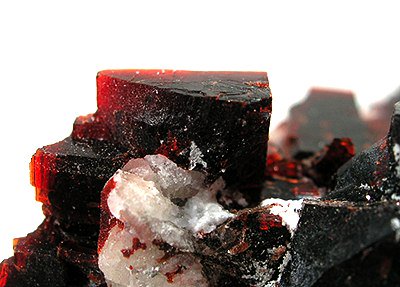

Q: What about Yukon Cornelius?
A: Licking is a terrible way to ID silver or gold, but from the deleted scenes he was actually looking for peppermint (), which while not a mineral, is something where taste is highly diagnostic.
A: Licking is a terrible way to ID silver or gold, but from the deleted scenes he was actually looking for peppermint (), which while not a mineral, is something where taste is highly diagnostic.
https://twitter.com/jmhaigh/status/1030814663347515392
Eep, don’t mind me, just repairing a branching thread midway through Minerals I Won’t Lick:
https://twitter.com/mikamckinnon/status/1030819190704427009
Q: You do you, but I’d never lick a rock. Ew!
A: Too late, you’ve already licked several minerals today.
Both salt & ice are naturally-occurring crystals with a definite chemical composition. #sorrynotsorry
A: Too late, you’ve already licked several minerals today.
Both salt & ice are naturally-occurring crystals with a definite chemical composition. #sorrynotsorry
Q: Is this stalactite appropriate for personal use?
A: Malachite (green) & azurite (blue) are soft copper-rich mineral that are highly sociable in dilute acids.
No. So much no. It’ll break, but before that the copper poisoning will be a nightmare.
A: Malachite (green) & azurite (blue) are soft copper-rich mineral that are highly sociable in dilute acids.
No. So much no. It’ll break, but before that the copper poisoning will be a nightmare.
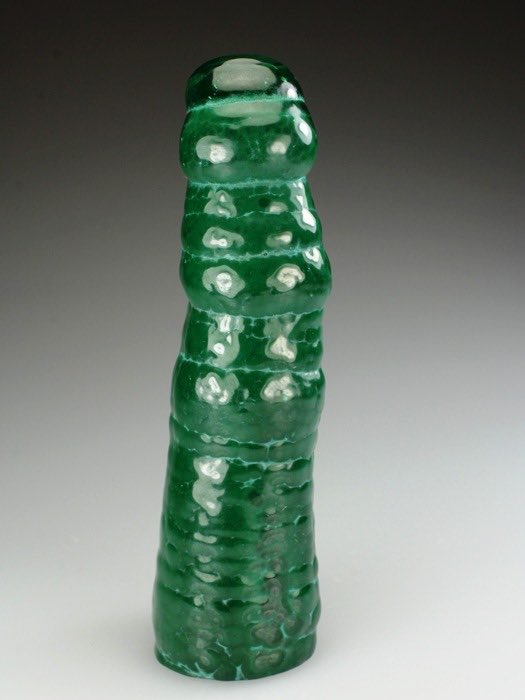
ANY stalactite or stalagmite is going to be composed of an acid-sensitive water-solvable mineral that is porous & not particularly strong. It’s inherent in how they form.
Go ahead & lick if you really want (but it’s not diagnostic), but don’t get too up close & personal.
Go ahead & lick if you really want (but it’s not diagnostic), but don’t get too up close & personal.
Errata:
Meat cave .gif instead of this one.
*soluble, not sociable, in dilute acid.
That palmful of silver goo on Don’t Lick Mercury Minerals was gallium, which won’t kill you but still doesn’t need licking to ID.
Meat cave .gif instead of this one.
*soluble, not sociable, in dilute acid.
That palmful of silver goo on Don’t Lick Mercury Minerals was gallium, which won’t kill you but still doesn’t need licking to ID.
Q: What about Benton Fraser licking sediment from under a suspect’s fingernail clippings?
A: Unhygienic but effective with beautiful tip technique.
Niter (saltpeter) has diagnostic salty baking soda taste. (It’s in gunpowder, but also common in cured meat & sensitive toothpaste)
A: Unhygienic but effective with beautiful tip technique.
Niter (saltpeter) has diagnostic salty baking soda taste. (It’s in gunpowder, but also common in cured meat & sensitive toothpaste)
• • •
Missing some Tweet in this thread? You can try to
force a refresh




